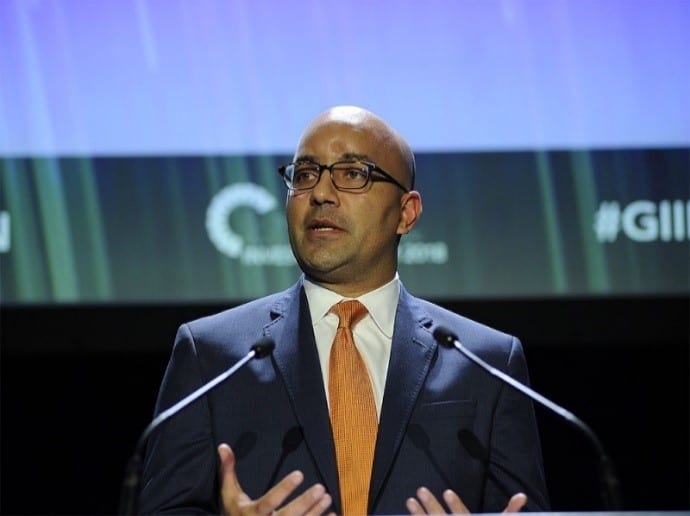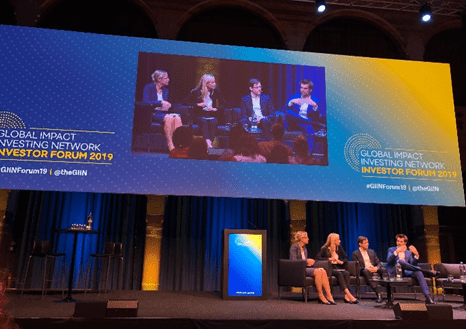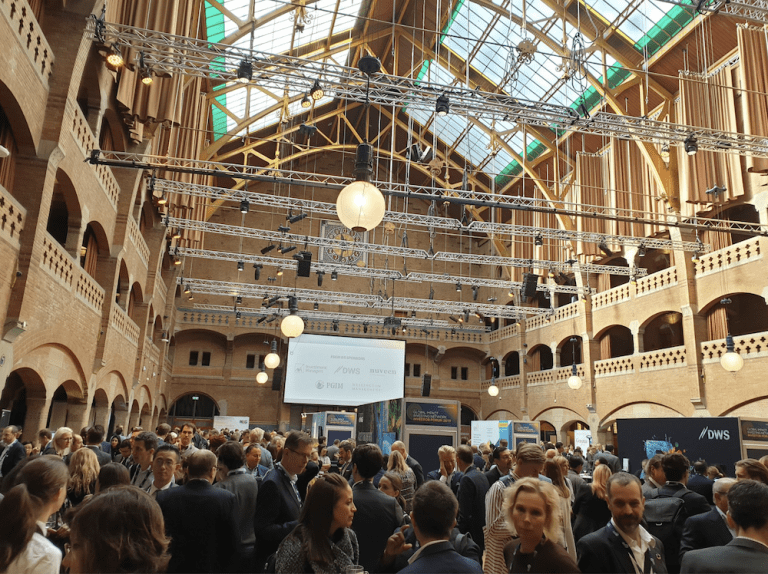2019 Global impact investment Network (GIIN) Investor Forum
The 2019 GIIN Investor Forum saw the gathering of 1200 global impact investors and professionals in Amsterdam. The forum, where a wide range of impact investment topics is tabled, began 10 years ago with barely 100 attendees. Now, 10 years later, the growth seems to be directly related to various areas gathering societal attention – the UN’s sustainable development goals, global inequalities, and climate change, to name a few.
GIIN is not trying to build a market, but rather a movement to make impact investing the norm rather than the exception, and hold businesses accountable for their impact. Financial markets can play a central role in solving the problems faced in society today, and so as a financial institution, we have to support this vision with our actions. By aligning our money with our values, we will be in a unique position to inspire people to seek a positive impact on how they earn, spend, save and invest their money.
One of the main points that was emphasised throughout the forum was that impact investing is not philanthropy. Nor is it a feel-good way of investing that sacrifices financial performance for impact. If you have to sacrifice financial return for impact, or vice versa, you need to think again before investing. If impact investments do not aim for market-related returns or more, the movement is not going to capture the vast majority of capital that this available for impact. Amit Varma from Quandria Capital said that they had not met an LP that, because of impact returns, would take lower financial returns. This would be true for most investors, which is why the narrative around impact investing must be changed – these investments can earn above market rate returns just as well as any other traditional investment can.
One of the most powerful things that we saw at the conference was the amount of urgency that has crept into the conversation. That this is no longer a matter of choice, but something that investors feel compelled to do now, and impact is increasingly becoming an integral part of portfolios.
Another important message that was conveyed is the power of incremental change. It is not feasible for everyone to transform their entire portfolio to a pure impact one. But, if everyone did a little bit, the widespread impact would make a difference. Even if you haven’t figured out how to get there yet, set targets. What gets measured gets managed, and incremental shifts can be compelling.
There are substantial grounds to believe that impact investing is the future of investing. Ultimately, impact factors have to be taken into consideration when investing for the long term, given how climate change is already changing the needs of society and creating new opportunities.



